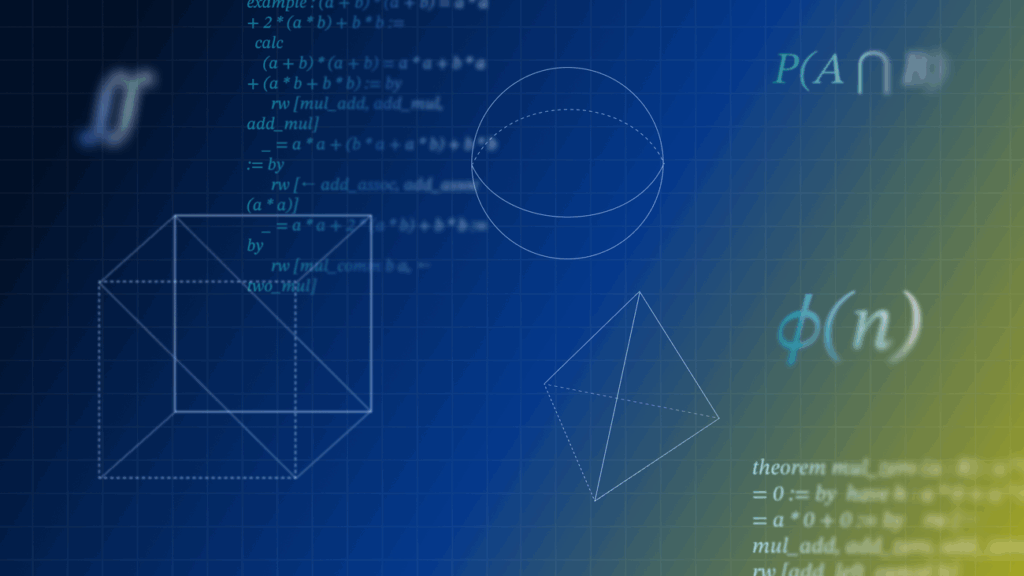Mathematics is the fundamental language of the universe, providing tools for describing everything from the laws of physics to the complexities of biology to the logic of computer science. For centuries, that frontier has been extended solely by human ingenuity. At Google DeepMind, we believe that AI can serve as a powerful tool to collaborate with mathematicians, increase creativity, and accelerate discovery.
Today we’re introducing the AI for Math Initiative, supported by Google DeepMind and Google.org. Five of the world’s most prestigious research institutions are coming together to pioneer the use of AI in mathematics research.
The initial partner institutions are:
Imperial College London Institute of Advanced Study Hautes Etudes Institute of Science (IHES) Simons Institute for Computing Theory (University of California, Berkeley) Tata Institute of Fundamental Research (TIFR)
Partners in this initiative will work toward the common goal of identifying the next generation of mathematical problems that require AI-driven insights, building the infrastructure and tools to drive these advances, and ultimately accelerating the pace of discovery.
Google’s support includes funding from Google.org and access to cutting-edge technology from Google DeepMind, including an enhanced inference mode called Gemini Deep Think, algorithmic discovery agent AlphaEvolve, and formal proof completion system AlphaProof. This effort creates a powerful feedback loop between basic research and applied AI, opening the door to deeper partnerships.
A pivotal moment for AI and mathematics
The AI for Math initiative comes at a time when AI’s reasoning capabilities are making impressive advances. Our own efforts have progressed rapidly in recent months.
In 2024, our AlphaGeometry and AlphaProof systems achieved the silver medal standard at the International Mathematics Olympiad (IMO). Recently, the latest Gemini model powered by Deep Think perfectly solved 5 out of 6 problems and scored 35 points, achieving gold medal-level performance at this year’s IMO.
We’ve also made further advances in one of our methods, AlphaEvolve. It was applied to more than 50 open problems in mathematical analysis, geometry, combinatorics, and number theory, and 20% of them improved on the previously best known solutions. In Mathematics and Algorithm Discovery, he invented new and more efficient methods for matrix multiplication, a core calculation in computing. For the specific problem of 4×4 matrix multiplication, AlphaEvolve found an algorithm that uses just 48 scalar multiplications, breaking the 50-year record set by Strassen’s algorithm in 1969. In computer science, it has helped researchers discover new mathematical structures that show that certain complex problems are even harder to solve with computers than before. This will provide a clearer and more precise understanding of the limitations of the calculations and will guide future research.
This rapid progress is evidence that the capabilities of AI models are rapidly evolving. We hope that this new initiative will allow us to explore how AI can accelerate discoveries in mathematics research and tackle more difficult problems.
We are just beginning to understand all that AI can do and how it can help us think about science’s deepest questions. We believe that combining the deep intuition of the world’s leading mathematicians with new capabilities in AI can open new avenues of research, advance human knowledge, and move us toward new breakthroughs across scientific fields.



